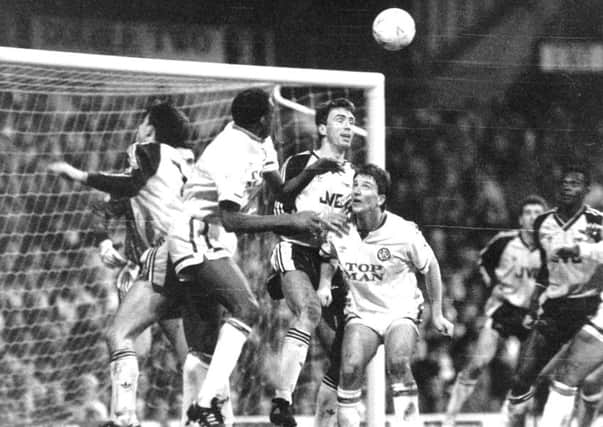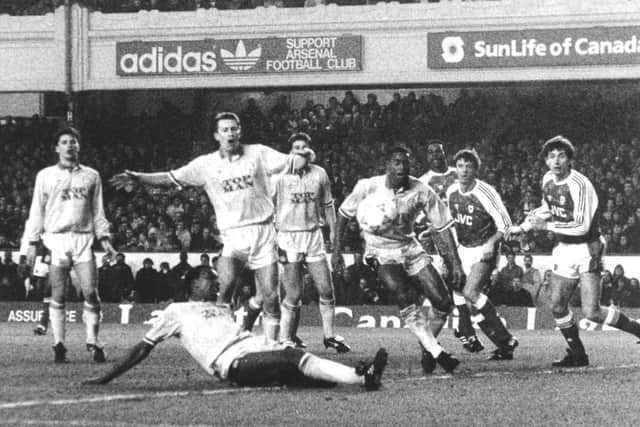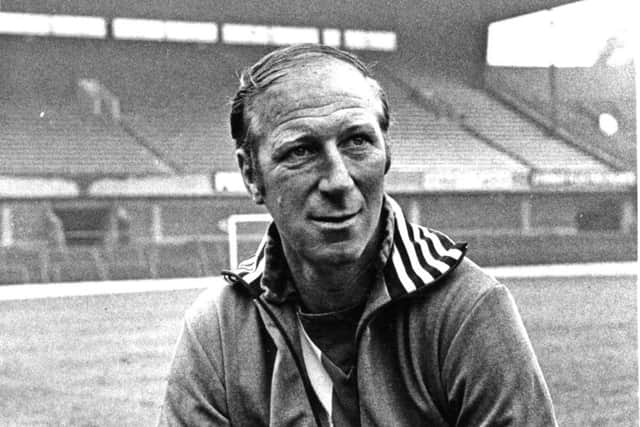Cup marathon which saw the FA blow whistle on multiple replays


A quarter of a century ago, Leeds United were in the midst of a four-match marathon with Arsenal in the space of twenty days in 1991 which drew an aggregate crowd of 116,281 spectators – with the Gunners eventually edging through after a third replay following seven hours of action.
Both Highbury ties ended deadlocked at 0-0, but there was no shortage of entertainment in each instalment or the two encounters at Elland Road either for that matter, not always the case when ties are replayed in quick succession.
Advertisement
Hide AdAdvertisement
Hide AdThat said, the plethora of meetings between both sides was duly noted by the FA, with the mammoth tie contributing to the decision of the governing body to abolish multiple replays.


The FA decreed that one replay, then extra time and then a penalty shootout would be a suitable alternative to a fixtures backlog
From 1991-92, multiple replays in the competition proper were replaced by one replay followed by penalty kicks.
The first penalty takers in the competition proper were Rotherham United and Scunthorpe United, with Rotherham winning 7-6 in a first round replay.
Advertisement
Hide AdAdvertisement
Hide AdThe first game of the Arsenal versus Leeds epic was staged in North London on January 27, 1991 and despite both sides giving their all and having their moments in front of goal, a breakthrough could not be conjured.


The tie was not without its share of controversy though with Gunners midfielder Paul Davis denied a ‘goal’ in the second half by an alert linesman.
Davis burst into the box following Alan Smith’s flick on and headed over ex-Arsenal keeper John Lukic in front of the North Bank, only for his effort to be ruled out.
Replays went onto conclusively show that the home captain was played onside by Mel Sterland and Chris Fairclough when the ball was chipped through to him – although Lukic perhaps may have made more of an effort to save Davis’s effort, had the whistle not gone.
Advertisement
Hide AdAdvertisement
Hide AdWith time running out, Leeds, attacking the Clock End, then almost produced a dramatic winner when Gary McAllister latched onto Gordon Strachan’s inviting cross before seeing his venomous rising strike turned away in outstanding fashion by ex-United custodian David Seaman.


The first replay took place in West Yorkshire three days later on January 30 and a high-class 120 minutes of football between two sides who enjoyed fruitful and enriching campaigns sufficed.
Chris Whyte, another player facing his former employers, thought he had fired Leeds in front in the second period of an absorbing clash, but his low shot was ruled out with Lee Chapman adjudged to be standing in an offside position.
But Chapman played a more telling hand not too long after to put Leeds in front with a real centre forward’s strike.
Advertisement
Hide AdAdvertisement
Hide AdThe burly forward scored the sort of goal he dined out upon during his rewarding stint at Leeds, powerfully heading home Sterland’s inviting centre – with his effort going in off the post.


But within a minute, play quickly swung to the other end, with a sublime effort from Anders Limpar restoring parity in double-quick time.
The impish Swede bewitched centre-halves Whyte and Fairclough in a slaloming run which ended with a classy low right-footed finish in the front of the Kop, with his effort giving Lukic no chance.
Leeds had chances to win it, with a saving block denying Strachan before Chapman curled an effort just over, with extra-time failing to separate the pair in a nip-and-tuck contest.
Advertisement
Hide AdAdvertisement
Hide AdSo it was back to Highbury for a third instalment on February 13 and incredibly the pair could not be separated again following 120 more minutes with the tie turning into a saga.
The main talking point surrounded a penalty for Arsenal, which was wastefully spurned by Lee Dixon – and it was back to Elland Road three days later on February 16 for a fourth meeting.
Familiarity did not breed contempt between the well-matched rivals, with another entertaining spectacle ensuing before a winner eventually emerged.
It was George Graham’s Arsenal who drew first blood, attacking the South Stand, with a lovely opener.
Advertisement
Hide AdAdvertisement
Hide AdDavid Batty lost the ball in midfield and the visitors surged forward on the break with the ball played out on the left to Paul Merson, who cut inside Sterland and Fairclough before seeing a shot beat Lukic for a fine solo goal.
On the stroke of half-time, Arsenal afforded themselves a killer second goal after Chapman failed to clear a free-kick, with Dixon provided with a spot of karma after his penalty miss, playing a neat one-two with Andy Linighan before firing home low past Lukic, despite pressure from Batty.
But Leeds were not finished and Chapman, in outstanding form for United, pulled one back with a predatory finish following Strachan’s right-wing cross, turning Linighan masterfully before firing home a pinpoint shot past Seaman.
But Arsenal, on the day that Tony Adams made his playing comeback for the Gunners reserves against Reading following his release from prison – a game watched by 7,000 fans – held out to book their place in the last 16.
Advertisement
Hide AdAdvertisement
Hide AdIt ended that particular cup marathon, atlhough Arsenal and Leeds had previously sampled cup marathons before in their FA Cup history.
Arsenal featured in another extraordinary FA Cup tie against Yorkshire opposition in 1979, with four replays needed in their clash with Sheffield Wednesday.
What made this long-running tie the more unlikely was that the Owls, managed by Jack Charlton, were in the Third Division.
The first match was on January 6 at Hillsborough, and finished 1-1, the next three days later at Highbury, with that game also ending in yet another 1-1 draw.
Advertisement
Hide AdAdvertisement
Hide AdLeicester’s old Filbert Street home then staged three matches; a 2-2 draw, a 3-3 draw, and then a 2-0 win for Arsenal on January 22, courtesy of goals from Frank Stapleton and Steve Gatting.
A year later, Arsenal had a titanic semi-final battle with Liverpool that was eventually decided at the fourth time of asking with a 1-0 win for the Gunners at Highfield Road, Coventry, Brian Talbot scoring an early goal.
Leeds took three attempts to defeat bitter foes Manchester United in an infamous semi-final tie March 1970, winning through in a second replay at Burnden Park, Bolton, thanks to a goal from the incomparable Billy Bremner.